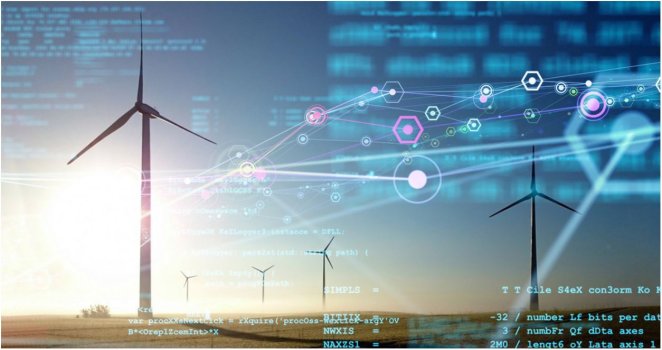As power grids fill up with renewable energy, electric vehicle charging stations and customer-owned generation, they will become too complex and fast-moving for their human operators to keep up with, a group of international researchers warns.
The humans will need help from smart machines — high-performance computers running decision making software systems built with artificial intelligence — according to researchers at France’s grid operator RTE, the U.S. Electric Power Research Institute (EPRI) and other partners.
With the proliferation of low-carbon options, "the grid becomes exponentially more challenging to operate," said Jeremy Renshaw, EPRI’s AI director. "Grid operators are already stretched to the limit. Getting AI resources to help is going to be critical."
That judgment has been reinforced, Renshaw says, by an ongoing international competition called L2RPN (for "Learning to Run a Power Network") challenging AI developers to invent software that keeps a simulated power grid from crashing in emergencies.
The stakes are high: Maintaining grid stability is already a knife-edge task as operators juggle climate hazards, cyberthreats, and an avalanche of connected devices like rooftop solar panels and smart appliances. But in the conservative electric power industry, AI will have to prove itself, Renshaw said. “It’s going to be anywhere from five to 15 years before we see widespread adoption,” Renshaw said in an interview with E&E News.
In the meantime, the race is on to create AI programs savvy enough to steer the future grid. The second round of the L2RPN competition last year attracted 300 contestants worldwide, including teams from the U.S., China, Russia, Colombia and Singapore. A new, expanded round is underway.
More interest in embedding advanced computer decision making into the grid was evident in a recent virtual EPRI conference that brought together a cross-section of U.S. utilities and developers of computer systems, EPRI says.
But entrusting computers and AI to make split-second operating decisions in grid emergencies is still a tall order, Renshaw said.
"It’s very optimistic to say we’d be ready to deploy [that capability] in five years. This is really cutting-edge stuff,” he said.
“Trustworthiness in AI is a huge issue,” said Massachusetts Institute of Technology professor Koroush Shirvan, speaking at the EPRI conference in May.
Continue reading: https://www.eenews.net/articles/wanted-superhuman-ai-to-master-a-greener-grid/
The humans will need help from smart machines — high-performance computers running decision making software systems built with artificial intelligence — according to researchers at France’s grid operator RTE, the U.S. Electric Power Research Institute (EPRI) and other partners.
With the proliferation of low-carbon options, "the grid becomes exponentially more challenging to operate," said Jeremy Renshaw, EPRI’s AI director. "Grid operators are already stretched to the limit. Getting AI resources to help is going to be critical."
That judgment has been reinforced, Renshaw says, by an ongoing international competition called L2RPN (for "Learning to Run a Power Network") challenging AI developers to invent software that keeps a simulated power grid from crashing in emergencies.
The stakes are high: Maintaining grid stability is already a knife-edge task as operators juggle climate hazards, cyberthreats, and an avalanche of connected devices like rooftop solar panels and smart appliances. But in the conservative electric power industry, AI will have to prove itself, Renshaw said. “It’s going to be anywhere from five to 15 years before we see widespread adoption,” Renshaw said in an interview with E&E News.
In the meantime, the race is on to create AI programs savvy enough to steer the future grid. The second round of the L2RPN competition last year attracted 300 contestants worldwide, including teams from the U.S., China, Russia, Colombia and Singapore. A new, expanded round is underway.
More interest in embedding advanced computer decision making into the grid was evident in a recent virtual EPRI conference that brought together a cross-section of U.S. utilities and developers of computer systems, EPRI says.
But entrusting computers and AI to make split-second operating decisions in grid emergencies is still a tall order, Renshaw said.
"It’s very optimistic to say we’d be ready to deploy [that capability] in five years. This is really cutting-edge stuff,” he said.
“Trustworthiness in AI is a huge issue,” said Massachusetts Institute of Technology professor Koroush Shirvan, speaking at the EPRI conference in May.
Continue reading: https://www.eenews.net/articles/wanted-superhuman-ai-to-master-a-greener-grid/

